‘From Cradle to Career’: Special Operations Warrior Foundation Leaves No Child of America’s Fallen Special Operators Behind
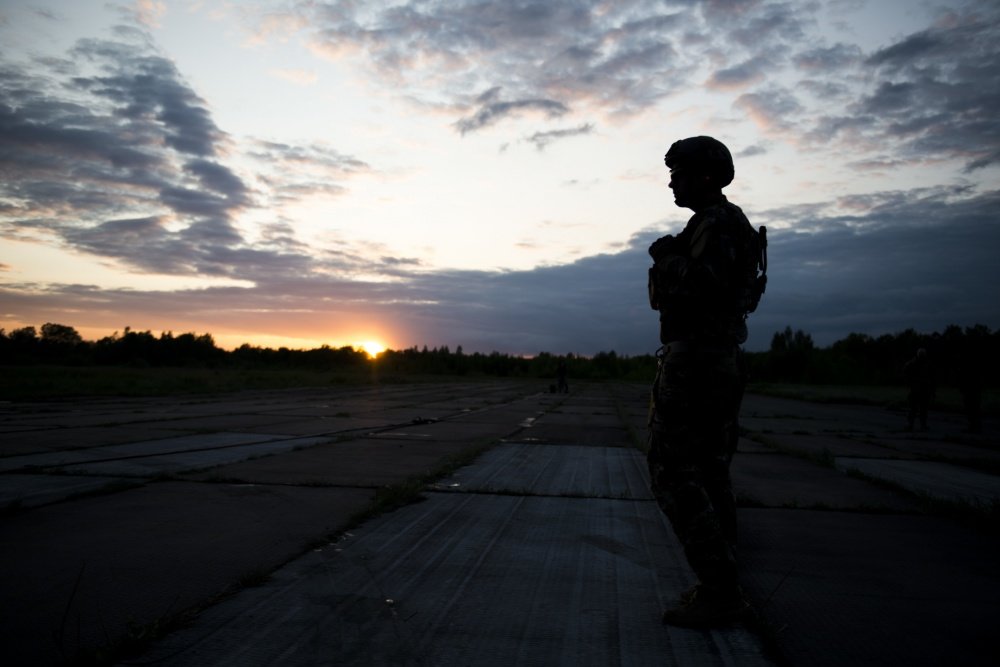
A Deployed Aircraft Ground Response Element team member assigned to the 352d Special Operations Support Squadron stands guard during a Forward Area Refueling Point training as part of TROJAN FOOTPRINT 16 in Pajuostic, Lithuania, May 15, 2016. Photo by 1st Lt. Christopher Sullivan via DVIDS.
Alicia Sims was at her neighbor’s house to get some Tylenol when she heard a knock at the front door. At first she thought it was one of her five children.
“Come in,” she hollered.
There was no reply.
“It’s unlocked, come in,” she yelled.
Again, no answer.
She went to the door and there stood a chaplain and another man. Immediately, Alicia’s thoughts turned to her husband, Jacob, a 36-year-old MH-47G Chinook pilot in the 160th Special Operations Aviation Regiment who was deployed to Afghanistan at the time, in October 2017.
“Is he okay?” Alicia asked.
The two did not immediately reply.
“Is he okay?” she asked again, clinging to the hope that her husband was only wounded. “Just tell me where I have to go.”
“If he was okay, I wouldn’t be here right now,” the chaplain replied.
Then, he delivered the news: Jacob’s Chinook had crashed during a nighttime raid in Afghanistan’s Logar Province. Six crew members were injured. Jacob was dead.
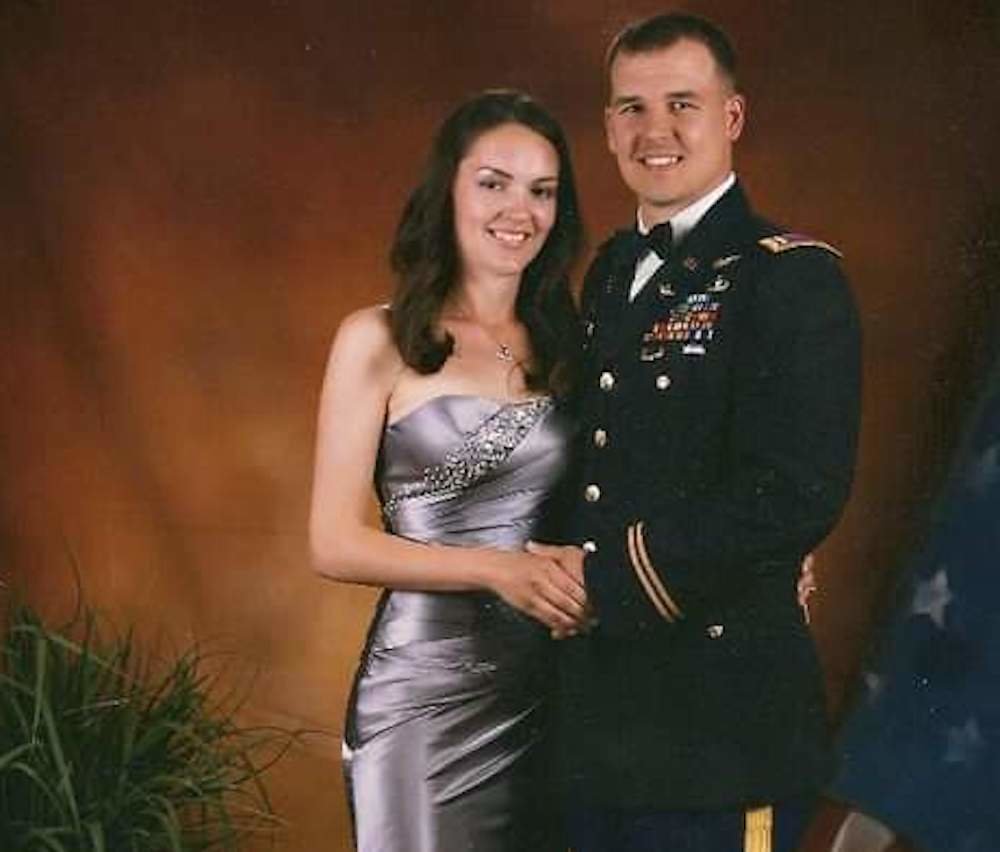
High school sweethearts, the couple began dating when Alicia was a sophomore. She married Jacob the day after she graduated. As a married couple, they’d been through thick and thin. Five children, countless deployments, moving across the country. Not an unusual story for military families in the post-9/11 era.
A chief warrant officer in the Army’s elite aviation outfit the “Night Stalkers,” based at Fort Lewis in Washington, Jacob had steadily advanced in his career over the years. Having dedicated her life to her family, Alicia, for her part, had never gone to university or had a career of her own. Instead, she’d held down the home front while her husband deployed over and over again — more times than she can now remember — to the war zones in Iraq, Afghanistan, and other places such as Kosovo. And now the nightmare had come true. Her husband, the father of their five children, wouldn’t be coming home this time.
Alicia was devastated, and she would grieve. Yes, that would come. But not yet. In the immediate roil and tumble of the single worst instant of her life, the first thing that went through Alicia Sims’ mind was how she was going to give her children the news that their father had died.
“My first thought was, Now I’ve got to tell my five kids this,” Alicia says in a telephone interview with Coffee or Die Magazine from her home in Clarksville, Tennessee.
“I’d been with Jacob half my life, and I was a stay-at-home mom,” she continues. “All I could think was: What am I going to do? How am I going to support these kids? I don’t even have an education. How am I going to pay bills? There were a lot of things running through my mind.”
In the first days following Jacob’s death, Alicia’s needs revolved around simple things like food, laundry, and getting the children to school. She also had to go to Dover, Delaware, to receive her husband’s body.
“I had to come back and plan his funeral and do all of that. And when you’re being pulled in all those different directions, you don’t think about grocery shopping or food or anything else,” she says.
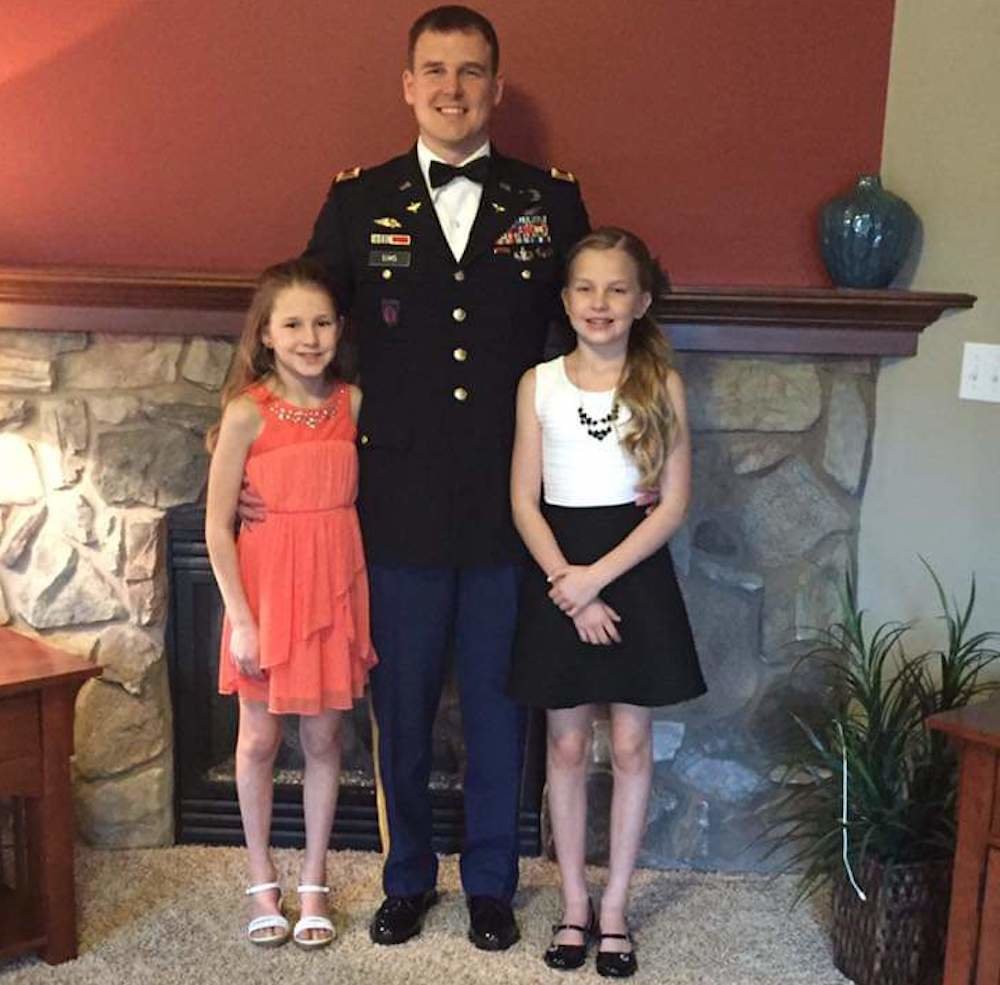
As time went on, however, the immediacy of the tragedy faded and the long-term reality of being a single mother set in. Consequently, Alicia’s worries evolved to encompass larger issues — more complicated problems than a simple check or a home-cooked meal by a neighbor could fix. Above all, she needed a college degree to land a job that could support her and her five children. But how would she ever find the time to go to school? Their youngest child, a daughter named Harper, was just shy of 2 years old when Jacob died, and Alicia couldn’t afford day care or preschool. Plus, in a few years the two oldest daughters would be thinking about going to college — how was she ever going to pay for all that?
The walls seemed to be closing in until something incredible happened — an unexpected encounter that forever changed the course of Alicia’s life. At an event for families of the fallen, a Special Operations Warrior Foundation representative approached Alicia, informing her that the organization had begun funding preschool programs. And then the magic words: “Are you interested?”
“And so the youngest of my five was one of their first kids that they put through preschool, which is very fortunate for me,” Alicia later explains. “None of my kids have ever been in preschool or anything like that, so Harper is the only one. Last year she was in preschool and this year she’s in pre-K, fully funded by the Special Operations Warrior Foundation.”
Today, Alicia Sims is a single mother, raising three daughters, aged 15, 14, and 4; and two boys, aged 11 and 10. The youngest daughter, Harper, will have her education paid for by the Special Operations Warrior Foundation from preschool to university. Her two older daughters are enrolled in a college preparation academy, and her son has been receiving math tutoring — all paid for by the foundation.
With her children’s educational needs provided for, Alicia has been able to pursue a college degree in social work.
“Knowing the [Special Operations Warrior Foundation] is just an email away if we were to need anything education-wise, it puts my mind at ease. Because I don’t have to worry about what to cut this month to pay for tutoring or anything like that,” Alicia says.
She adds: “Because my youngest gets to go to preschool, and I don’t have to worry about day care, it’s allowed me to better myself to further my own career so I can take care of myself and my kids and not have to rely on other people.”
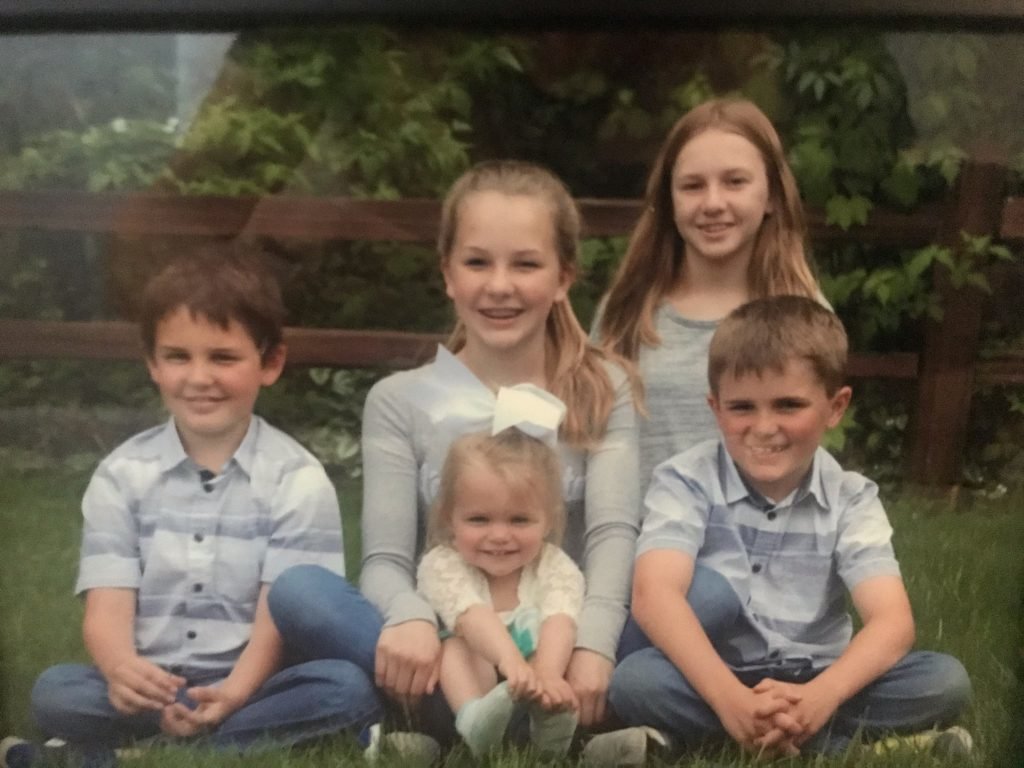
Typically after a tragedy, the immediate outpourings of grief and sympathy taper off as time goes on. And it is the family, the survivors, who are left to live with the enduring consequences of their loss, while others — no matter how well intentioned their initial expressions of sympathy may have been — are able to move on.
“Everybody else goes on with their lives, while our lives are still kind of at a standstill,” Alicia says. “But one thing I can say about the [Special Operations Warrior Foundation] is that they have never lost contact. Every few weeks, you know, they’re reaching out to make sure I don’t need anything. That the kids don’t need anything. ‘Is anybody struggling? Do they need a tutor?’ There’s a constant outreach just to make sure we’re okay.”
The Special Operations Warrior Foundation is an organization that provides college scholarships, as well as educational assistance as early as preschool, for the children of special operations soldiers killed in combat or training. The 40-year-old 501(c)(3) charitable organization distinguishes itself from other nonprofits by committing its resources to the children of the fallen for the long haul — from “cradle to career,” as the organization’s CEO and president, Clay Hutmacher, tells Coffee or Die Magazine.
“Our kids, I think, need this holistic approach because they’ve been through a traumatic event,” Hutmacher says. “They’ve lost a parent and most of them are in a single-parent home. Our strategy is to invest in these kids up front. And, you know, preschool statistically significantly enhances your kid’s chances of going on to higher education.”
That “holistic” approach is yielding results. Some 90% of the children sponsored by the Special Operations Warrior Foundation go on to pursue a college education immediately after high school — 20% above the national average. Moreover, between 92% and 93% of the foundation’s sponsored children graduate a four-year institution in five years or less — about 30% above the national average.
Currently, the Special Operations Warrior Foundation counts 882 children in its programs — the average age is 7. With up to $8,000 available per year for a child to go to preschool, the foundation also pays for tutoring and for specialized high school programs such as the college preparation courses in which Alicia Sims has enrolled her two oldest daughters. The organization also provides benefits to about a dozen children in need of special education.
“We pay for college visits, and we pay for study abroad,” Hutmacher says. “We help with internships just to defray some of the costs of relocating and all of that. And then we run [the students] through a program to prep them for college study skills, financial management, writing their essays, all that kind of stuff. And then, of course, we fully fund their [college degrees], and we don’t care where they go. We don’t care if they go to Harvard or to community college to be an auto mechanic.”
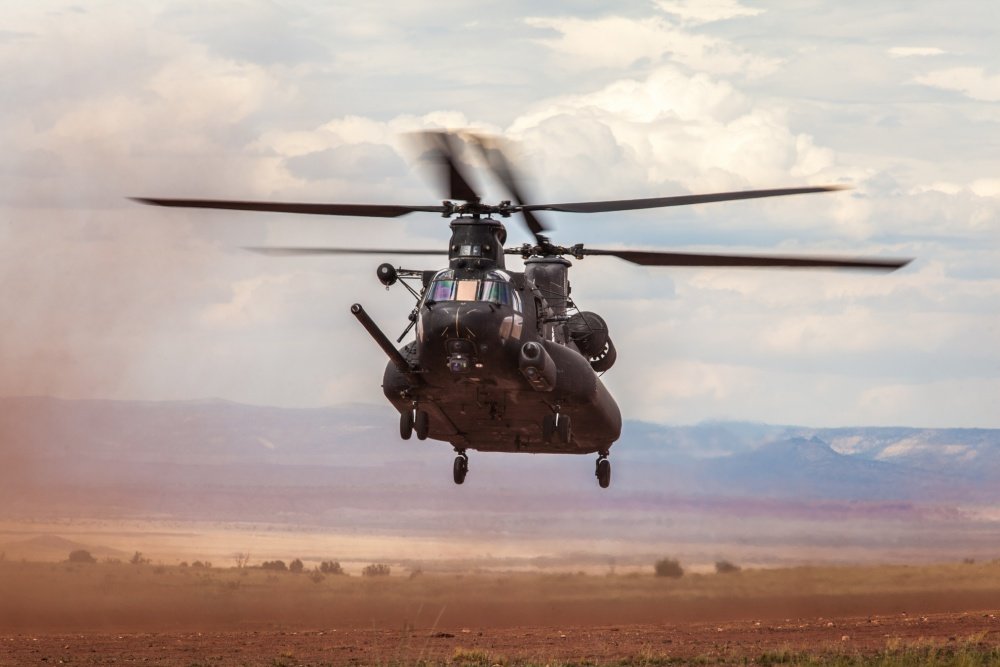
Our nation will always need special operators. And those elite warriors will likely remain perpetually engaged in combat, whether covertly or overtly, to hold the world’s dark forces at bay beyond the edges of America’s borders, guaranteeing the peaceful life we enjoy and so often take for granted.
Each day when Hutmacher arrives at work, he takes a minute to pause in the main hallway of the foundation’s Tampa, Florida, offices. The walls are covered with photos of the college graduates the Special Operations Warrior Foundation has sponsored over the years — a stark testament to the toll of our nation’s wars, no doubt. But also a measure of all the good the foundation has done for the families left behind in the wake of those tragedies.
“You walk in this building every day and we’ve got pictures on the wall of kids that we’ve helped. The job satisfaction is off the chart,” Hutmacher tells Coffee or Die Magazine.
After a military career that spanned some 41 years — from his days as an enlisted Marine to retiring as an Army major general at the upper echelons of the special operations community — Hutmacher understands the reality of the threats facing our nation, as well as the constant expenditure of courage and sacrifice needed to keep those threats at bay.
“Behind every name, there’s a whole family whose lives are changed forever. Their struggle is just beginning. You know, their lives were changed in the blink of an eye and not for the better. And there’s many, many challenges ahead,” Hutmacher says.
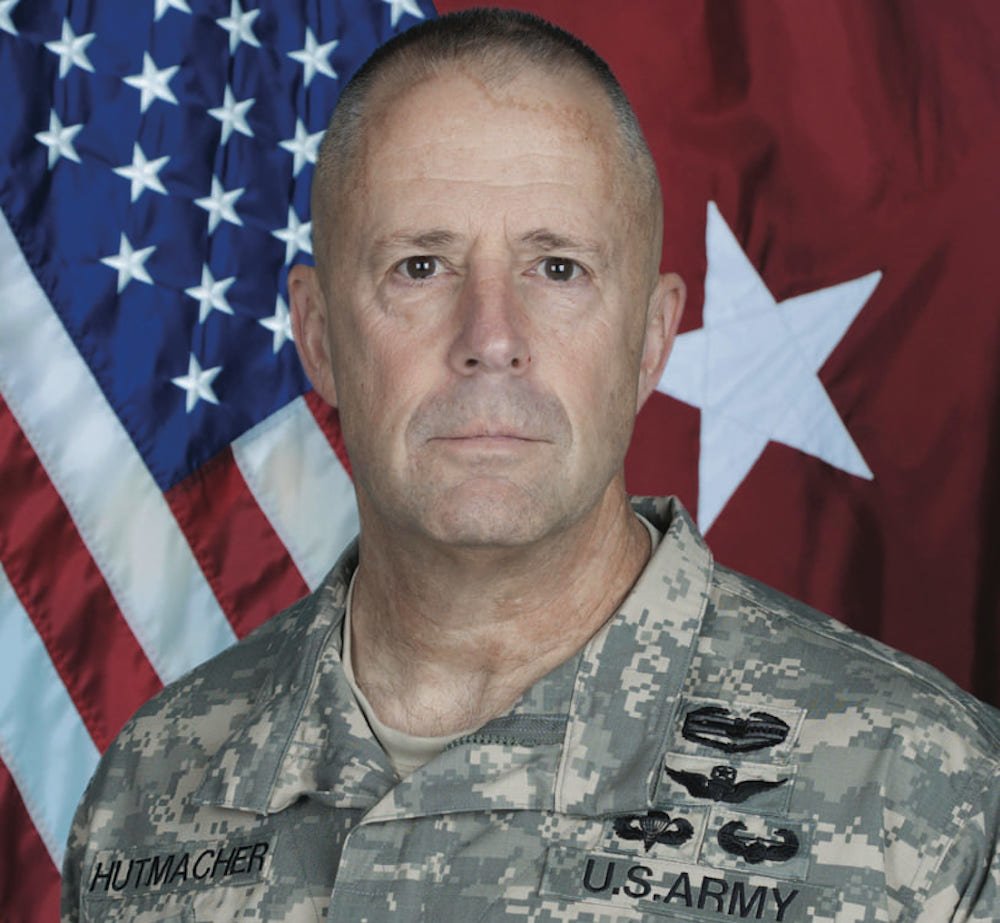
Thus, each morning, as Hutmacher stands in that hallowed hallway and takes stock of the good work his organization has done, he also understands there’s a lot of work left to do. In this endless endeavor, Hutmacher says he is continually inspired by the exceptionalism of the men and women who’ve stood up to fight for our country.
“You have unique men and women that have chosen a life of service, and they are generally very, very talented and they could have done many other things,” Hutmacher explains. “But they chose a life of service. So I feel like it’s the least we can do to take care of their children.”
For her part, Alicia Sims says that thanks to the Special Operations Warrior Foundation, her children are not simply surviving the trauma they’ve experienced. Rather, they’ve been galvanized to lead uniquely successful lives in honor of the legacy of their father’s heroic service and sacrifice.
“There’s a whole group of people standing in their corner, cheering them on, wanting them to succeed in life,” she says. “It is definitely putting more of an importance on furthering their education because, like I explained to them, you know, if your father hadn’t have died, we wouldn’t have been able to ever pay for all five of our kids to go to college. So this is an opportunity they wouldn’t have had otherwise. They see the importance of that. And they want to make sure he didn’t die in vain, and they’re making him proud, and they use the benefits they have to their fullest potential.”
The Special Operations Warrior Foundation was founded in the wake of Operation Eagle Claw — an April 1980 operation ordered by President Jimmy Carter to attempt to rescue the 52 hostages held at the US Embassy in the Iranian capital of Tehran. Five Air Force personnel and three Marines were killed in the ill-fated mission, leaving 17 children without a father.
At first, the charitable organization was focused on providing college scholarships to the children of special operators killed in combat or training. Yet, as its financial resources have improved over the years, its mission has expanded. Apart from the “cradle to career” philosophy espoused by Hutmacher, the foundation now also supports the children of living Medal of Honor recipients (if they’re associated with special operations forces), as well as the families of special operators who have been gravely wounded in training or combat.
“It’s a very amazing foundation. There’s no questions asked. You simply fill out a form just so they kind of know what’s needed, where the money needs to go. And it’s taken care of,” Alicia Sims says. “If the foundation wasn’t a part of our lives, I don’t know what we’d do.”
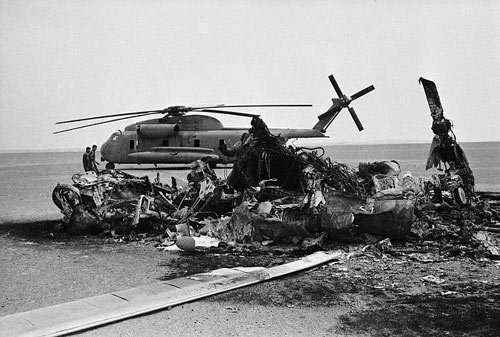
A triathlete and an outwardly laid-back guy (despite his six and a half years as a Marine and rising to the rank of major general in the Army), Hutmacher has a passion for his work that radiates through the telephone connection. In short, the man embodies the spirit of service, displaying a boundless drive to better others’ lives and to draw his own quiet happiness from that selfless endeavor. One small example: Hutmacher writes — by hand — a congratulatory note to every college student sponsored by the foundation who earns a 3.5 GPA or higher.
“I want to encourage the students to continue and to succeed. That’s my passion,” Hutmacher says. “I’m not a professional fundraiser, I’m a stick wiggler. But I get fired up about this job. Especially when I see the impact on these kids. It’s awesome.”
Hutmacher’s anecdotes exemplify his personal commitment to the foundation’s mission. He recounts the story of Josh Wheeler, a 39-year-old Army master sergeant who served with Delta Force and was killed during a hostage rescue mission in Iraq in 2015.
Throughout the course of his storied military career, Wheeler earned 11 Bronze Star Medals including four with Valor Devices. He was posthumously awarded the Silver Star, the Purple Heart, and the Medal of Patriotism.
When Wheeler left behind a wife and four sons, the Special Operations Warrior Foundation stepped in to help. And when one of Wheeler’s sons started having trouble in school, Hutmacher organized a cruise for the two of them around Tampa Bay as a “team-building” opportunity. Later, Hutmacher visited Wheeler’s family at Fort Bragg in North Carolina. He brought them takeout Chinese food like their father used to do. Seemingly small gestures, perhaps, but in the end they made all the difference.
The son who had once been struggling in school went on to study at North Carolina’s Sandhills Community College. He earned a 3.5 GPA in his first quarter. Last quarter, he earned a 4.0 GPA, Hutmacher proudly says.
“That’s what it’s all about,” he explains. “You see, these are kids that have been through some tough times. So, to me, that’s why we’re here. We invest in each and every child to make sure they succeed.”
Army Sgt. Cameron Meddock, a Ranger, died in combat in Afghanistan in January 2019. After his daughter, Brinley, was born the following April, the Special Operations Warrior Foundation immediately reached out and enrolled her in their program. Next year, Brinley is set to attend preschool under the foundation’s sponsorship.
“I was six months pregnant when my husband was killed in Afghanistan,” said Meddock’s widow, Stevie, in a statement. “Looking or planning for the future seemed impossible. Special Operations Warrior Foundation reached out to me to help ease some of that stress for me. Knowing that my daughter will have the opportunity to have an education without the associated financial burden has taken a huge weight off my shoulders and given me something positive to look forward to.”
Starting in eighth grade, years from now, Brinley is slated to attend a college success academy. If she chooses to go to college, she’ll graduate in 2040.
“It’s a lifetime commitment,” Hutmacher says. “We pour our hearts and souls into these families.”
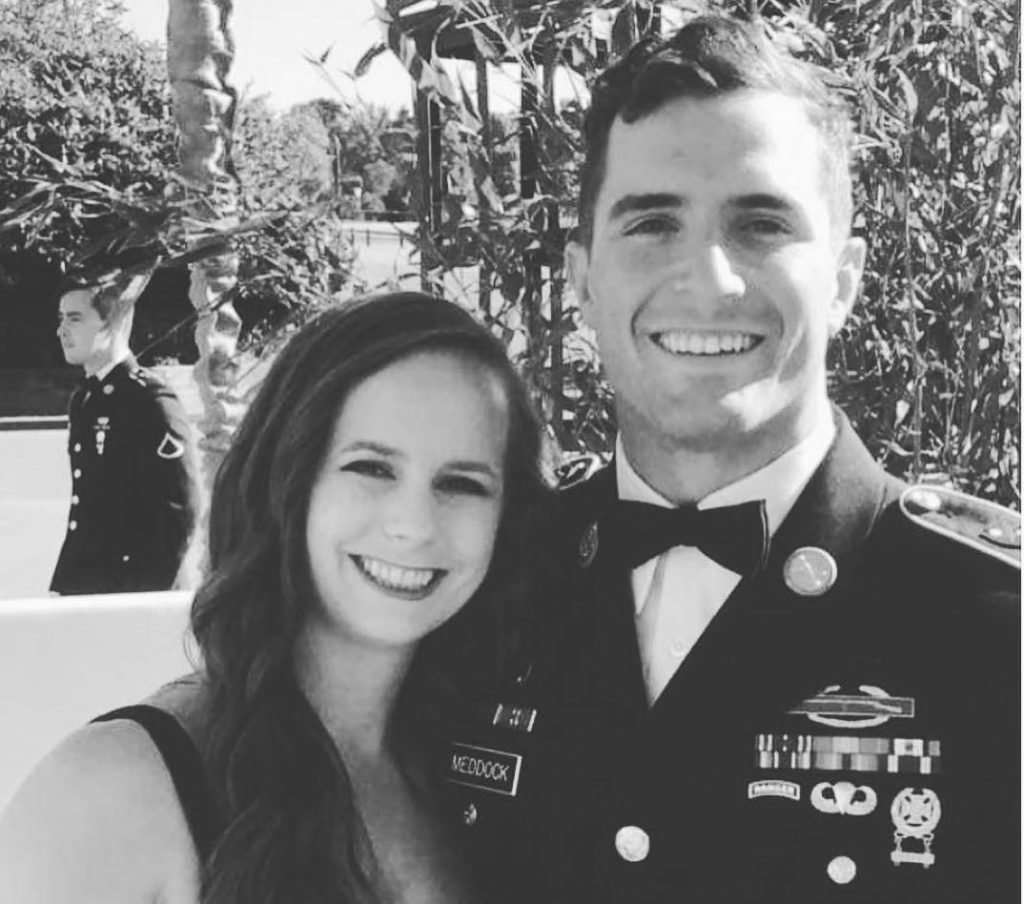
A native of Wenatchee, Washington, Hutmacher commanded at every level during his three tours with the 160th Special Operations Aviation Regiment. He rounded out his illustrious career serving as commanding general of Army Special Operations Aviation Command, deputy commanding general of Army Special Operations Command, and director of operations at US Special Operations Command in Tampa.
When he retired in 2018 — just one month shy of 41 years of active-duty service — Hutmacher briefly considered working for a military contractor. However, an unexpected opportunity arose to take the reins of the Special Operations Warrior Foundation as president and CEO. It was a fork in the road, but after some careful consideration, he knew where his heart lay.
“It’s the dream job,” Hutmacher says. He admits, however, that fundraising is a “constant struggle.” For one, the foundation doesn’t pay for TV advertisements — its only paid advertising commitment is a $5,000 spread in the Air Commando Journal.
“The worst part of this job, to be honest with you, is asking for money. I’m not shy, but I hate to ask,” Hutmacher says. And this year, COVID-19 hasn’t helped matters. Many of the foundation’s annual fundraising events were canceled due to the pandemic.
“It’s not only us, everybody’s in the same boat,” Hutmacher says. “This is going to be a struggle for us to maintain our revenue, but it is what it is.”
To recoup a portion of its lost fundraising, the foundation has added some virtual events this year — including a virtual bourbon tasting hosted by Bardstown Bourbon Co. Additionally, Hutmacher lauds the efforts of veterans and active-duty personnel who occasionally embark on audacious fundraising endeavors on the foundation’s behalf. After all, service to one’s nation doesn’t necessarily end when the uniform starts collecting dust in the closet.
“We get a lot of current and retired special operators who feel driven to support us,” Hutmacher says.
One notable example is David Goggins, a retired Navy SEAL who has run numerous ultramarathons and performed other mind-boggling athletic feats — such as multiple world-record attempts to complete the most pullups in 24 hours — to raise money and awareness for the Special Operations Warrior Foundation.
In some ways, Alicia Sims and her children were prepared for loss in ways that civilian families aren’t. The children, in particular, had gotten used to dad not being around due to the nonstop pace of deployments and training, which became part and parcel of life in the special operations community in the post-9/11 years. The couple’s youngest child, Harper, who was almost 2 when Jacob died, spent precious little time with her father.
“I mean, he maybe saw her four months out of those two years. Between training and deployment,” Alicia says. “Everybody asked me shortly after why the kids were adapting so easily. And the reality of it is, they were used to him being gone. You know, it wasn’t abnormal. He was gone more than he was there.”
Special operations forces bore a heavy burden in the Iraq and Afghanistan wars. And despite all the talk these days about so-called great power competition, America’s special operations units remain embroiled in counterterrorism combat in Afghanistan, Iraq, and Syria, as well as various other sites in Africa and Asia.
Irregular warfare may not be the topic du jour in the Pentagon’s polished hallways, but America’s special operations forces remain engaged in nearly endless combat in some rough corners of the world. Consequently, the need for the Special Operations Warrior Foundation’s mission isn’t going away. Last year, the foundation added 79 children to its programs — roughly an even split between commissioned and enlisted families — representing 39 fatalities. And this year, the Special Operations Warrior Foundation has added 40 new children to its programs, with some 12 to 16 more pending.
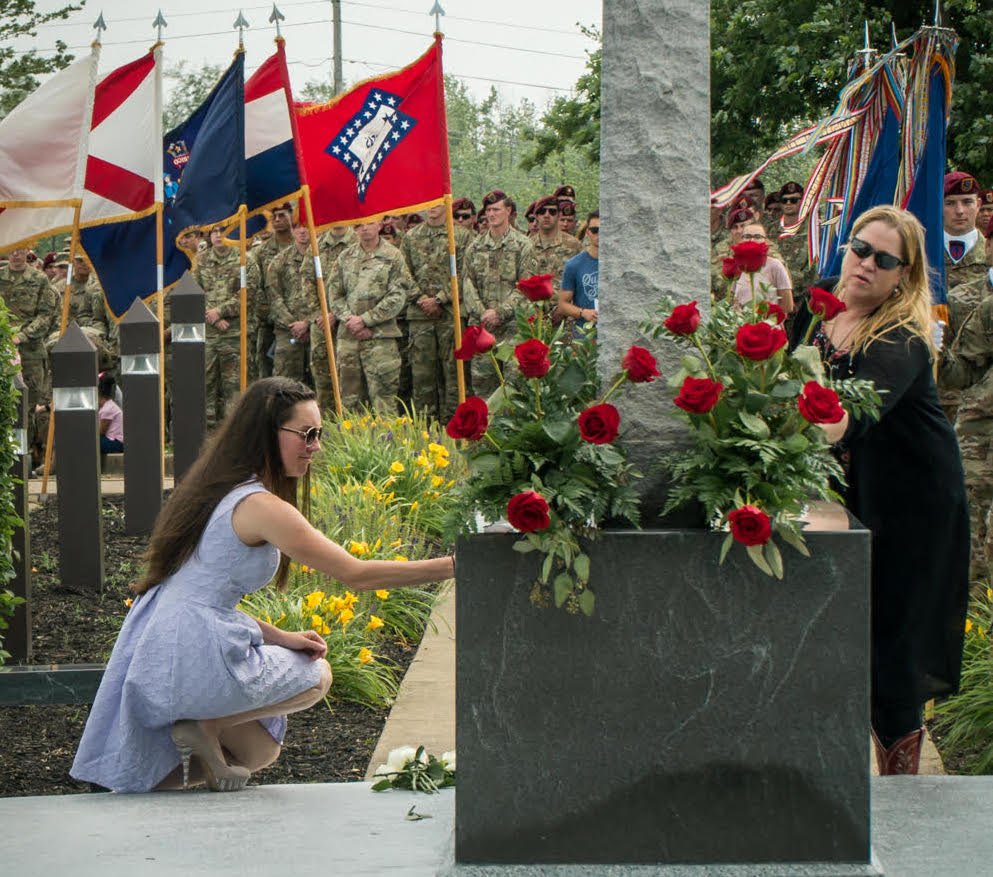
Clearly, the toll of counterinsurgency warfare has not abated — even if the lion’s share of that war effort occurs in the shadows. Overall, nearly 400 children supported by the Special Operations Warrior Foundation have graduated from college. And the foundation currently has 190 students enrolled in college programs. Overall, since its inception in 1980, the organization has provided benefits to more than 1,400 children, representing more than 1,130 fatalities.
Hutmacher explains that he had been a “benefactor” and a “big fan” of the Special Operations Warrior Foundation for years. While he was on active duty he saw firsthand the value of the foundation’s work to the families of the fallen, as well as the peace of mind it gave special operators as they went into the breach, again and again, on their country’s behalf.
“We had a lot of missions where we lost a lot of people,” Hutmacher says, going on to highlight how the foundation’s work reaches beyond the families it directly benefits.
“I’ve had dozens and dozens of active special operators from all the services share with me that it gives them peace of mind to know that if something happens to them the Special Operations Warrior Foundation will be there for their kids,” Hutmacher says. “You’d be hard pressed to find anybody in the special ops community who doesn’t get some peace of mind knowing that we’re out there.”
Similarly, Alicia Sims is confident that her personal experience with the foundation has sent a positive message to those men and women in the special operations community who are still fighting our country’s wars.
“I’m actually still in contact with everyone who survived that night,” Alicia says of the helicopter crash that killed her husband. “Knowing that there will be people there to take care of their families, God forbid something happens, helps them to not dwell on the ‘what-ifs’ when they’re going into combat. They know that their families will be taken care of. And that’s a huge relief.”
“When I flew AH-6 attack helicopters, there were a couple of times when I wasn’t sure what the outcome was going to be on some of those missions,” Hutmacher says. “And, you know, my first concern was always about my kids … if I had one wish, it would be that my kids were taken care of.”

BRCC and Bad Moon Print Press team up for an exclusive, limited-edition T-shirt design!
BRCC partners with Team Room Design for an exclusive T-shirt release!
Thirty Seconds Out has partnered with BRCC for an exclusive shirt design invoking the God of Winter.
Lucas O'Hara of Grizzly Forge has teamed up with BRCC for a badass, exclusive Shirt Club T-shirt design featuring his most popular knife and tiomahawk.
Coffee or Die sits down with one of the graphic designers behind Black Rifle Coffee's signature look and vibe.
Biden will award the Medal of Honor to a Vietnam War Army helicopter pilot who risked his life to save a reconnaissance team from almost certain death.
Ever wonder how much Jack Mandaville would f*ck sh*t up if he went back in time? The American Revolution didn't even see him coming.
A nearly 200-year-old West Point time capsule that at first appeared to yield little more than dust contains hidden treasure, the US Military Academy said.












